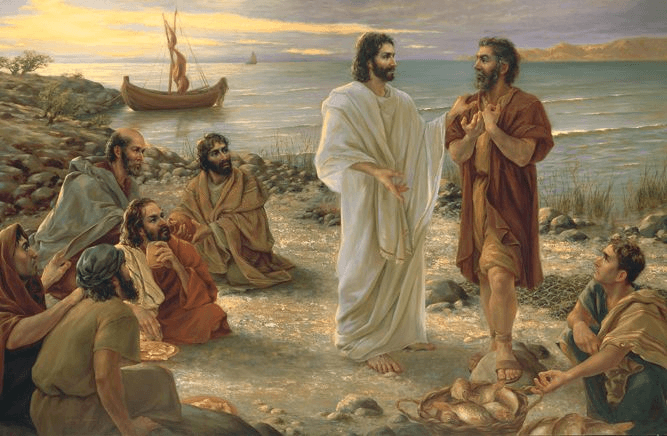Jijo Kandamkulathy, CMF
Claretian Publications, Macau
21st Sunday in Ordinary Time – Year B
Jn 6:60-69
Gospel Reflection
Today’s gospel passage is the conclusion of the discourse on Jesus, the Bread of Life, that we have been reflecting on for four weeks. It began with the crowds following Jesus attracted to the novelty of his teaching. Then Jesus performs the miracle of sharing, which started with a little boy’s offering of the bread and fish. They are fed. They are happy. Then, their faith in Jesus is converted into a political movement to make him king. Jesus slips away from their attempt, but the people pursue him for bread. Jesus challenges them that following him requires more than seeking the bread for their physical hunger but eating the Word of God, or getting transformed by what he preaches to attain eternal life.
Commitment! A life-long commitment to the Word of God is what Jesus is demanding. To be subjected to the transforming power of the Word as a way to sustain the people eternally, not just giving bread to sustain them in the present world. Unable to stand to the challenge, the crowd thins down to the twelve apostles and a few more, perhaps. Those who desert Jesus are willing to follow Jesus as long as he is able to give them bread as a miracle worker.
But further commitment is something that the bread seekers refuse to make. They have to reprioritize their lives painfully, which they do not want to do. Jesus now asks those who remain if they want to leave too. Peter replies that he would not barter the words of eternal life with anything else. Jesus has words or food that preserves us for eternal life. Peter stands as the representative of all Christians, who are willing to commit their lives to the project of life that Jesus proposes despite the difficulties of living it. It is not flesh and blood that makes Peter or anyone of us reach that certitude. It is the Holy Spirit.
The text is most likely written in the background of members leaving the community of believers, and John wants to encourage those who remain. For satisfying a curiosity, one could wonder, what bargain were those who leave striking against the sure-shot for eternal life? What did they find greater than eternal life? Each one probably finds one’s answer as in the parable of the banquet (Lk 14:15-24), “I have bought some field… I have married a wife… I have bought some oxen.” These answers probably represent mine as well. I feign my personal exceptions to escape the invitation for a commitment to live the word of God.
One clear example of those who left Jesus is narrated in the gospels of Luke (18), Matthew, and Mark. One young man approaches Jesus. He is a ruler. He inquires, “What should I do in order to inherit eternal life?” In an apparently simple question, there is a hook. It is the son who can inherit the property of the father. He wants to get a divine inheritance, in other words, to become a son of God. Jesus inquires about his lifestyle, not what he believes but what he practices. He repeats the ten commandments, which he has practiced faithfully from childhood. Practicing the ten commandments had given him a guarantee of a good life on earth. But his question is about inheriting eternal life. Jesus replies, “You lack only one thing!” Jesus asks him to sell his property, give to the poor, and follow him. This man leaves with a downcast face. He is not willing to barter his earthly riches for heavenly inheritance. He is someone who settles for a better life on earth instead of eternal life.
It makes only some physical effort to walk behind Jesus, but it requires a lifetime of conversion to follow him. His words should take flesh in us. We need to walk the gospel talk to follow him.


 Follow
Follow


